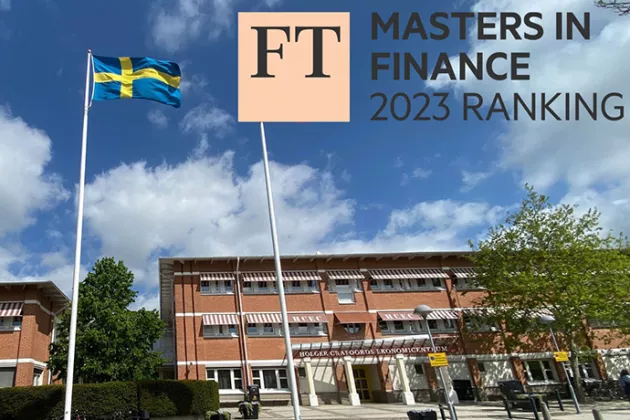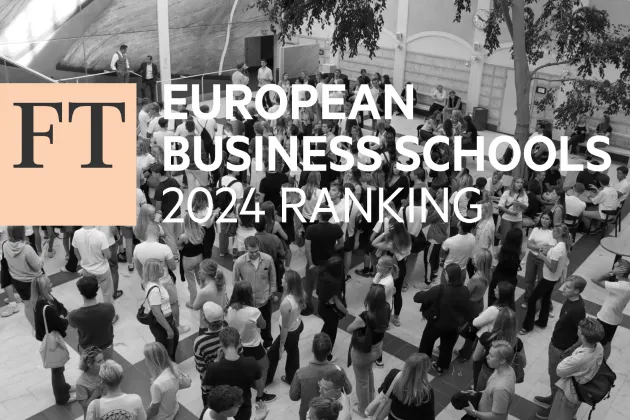The latest Financial Times Masters in Finance ranking is now live (today, 16 June 2025), and the programme has improved its position — from #45 (2024) to #42 this year. The ranking includes the top 70 pre-experience finance programmes in the world. The improved position reflects the programme’s continued development and strong international reputation.
Especially encouraging that we’ve moved up a few spots
When the programme climbed the ranking last time, Programme Director and Associate Professor Jens Forssbaeck highlighted the role of alumni career outcomes as a key driver — calling it a clear sign of the programme’s relevance and competitiveness in the financial sector. He also noted that the ranking helps attract top students, strengthens ties to employers, and motivates ongoing development. Now that we catch up with him he notes that the competition in the ranking has become significantly tougher in recent years, with many new entrants — particularly private business schools — joining the list.
“In light of that, it’s especially encouraging that we’ve moved up a few spots,” he says.
Past success is no guarantee for the future
Since the ranking is based primarily on the career outcomes of former students, the result is also a strong indication of the programme’s continued relevance in the job market. Looking ahead, he sees “challenge” as a key word.
“The Financial Times article accompanying the release of the ranking today highlights how the finance job market is changing. There’s increasing competition for positions at traditional employers like major banks, a growing share of roles in alternative segments such as private equity, and many entry-level tasks that may eventually be taken over by AI. So, as always, past success is no guarantee for the future — we need to continuously work to keep the programme relevant and competitive.”



